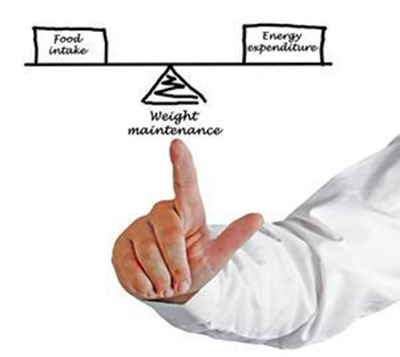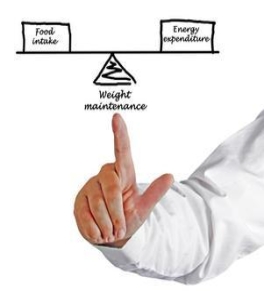
How many times have people lost and regained the same 50-100 pounds? Most of our patients have tried multiple diets, lost weight, only to fear when the regain is going to happen. Bariatric surgery is only a tool when it comes to weight loss and weight maintenance. You can gain weight back after surgery as well. The bottom line is we have to eat healthy and be active to lose as well as maintain for a substantial amount of time. Surgery helps us get there, but staying there is often up to you.
Losing weight is very exciting. It is exciting to see the scale go down, inches being lost, and people cheering you on in the background. You almost feel invincible. Then you finally reach your “goal” weight. Maintenance can be a scary thought. Some people are just waiting for the scale to start creeping back up. Maintenance can also be thought of as “boring”, the “thrill” of losing weight wears off. All the fanfare fades.
Weight maintenance is the “upkeep” or “care of your weight”. This is where you want to keep your weight at a fairly stable number. Managing your weight implies more ownership of the process and requires some personal accountability. Patients often come up with excuses as to why they can’t manage their weight, yet they manage all other aspects of their lives. Getting your children where they need to be and at the right time shows you can manage your time and your schedule. You manage your life by keeping up with laundry, groceries and work demands which show you can successfully manage your life. Some people feel they are not capable of maintain weight based on past attempts at weight loss.
There are several proven strategies to help people manage and maintain a healthy weight. Keep in mind you are the one who is accountable for your behaviors. You are the one responsible for making decisions about when and how often you choose to follow the things necessary to maintain a healthy weight.
Below are a list of things you have to do to maintain a healthy weight:
- Make healthy food choices.
You can always make an appointment with the Registered Dietitian in the bariatric office if you are unsure of the definition of “healthy”. They can help you with meal plans and recipe ideas.
- Maintain portion control.
Weighing and measuring your food with ensure you are eating enough and not too much. We often suffer from portion distortion which can lead to overeating. Your best tools to have available to you are your food scale and a set of measuring cups.
- Exercise regularly.
You should aim to exercise 4 days per week for about 150 minutes per week. This is something you MUST do for weight maintenance. You don’t have to like exercise, but you have to do it. Schedule it like an appointment and you will be more successful. Try to find something you enjoy and the time goes faster.
- Drink water.
Aim to consume 64 oz per day. Try adding fresh fruit to your water to change put the flavor. See our previous blog about water infuser recipes.
- Eat breakfast.
It is true that breakfast is the most important meal of the day!! This will kick start your metabolism and prevent you from overeating and feeling hungry throughout the day.
- Plan your meals and follow your plan.
This tip will help you stay on track throughout the week. Eating healthy does take planning, but it doesn’t have to be difficult. You can also look at most menus on line if you are planning to go out to eat. This way you can see your choices in advance and plan what is a healthy choice instead of waiting until you are hungry.
- Keep a food diary and exercise diary.
There is a lot of research on the power of this behavior to help with weight maintenance. If you are honest with your diary, you can often see where there are areas to improve. Plus, it is helpful to your Registered Dietitian and Bariatric Surgeon to see what you are eating. Use a smart phone app to help track your food, there are several to choose from. Your exercise diary will help you set goals on ways to improve and track your progress.
- Get individual and/or group therapy.
Attend as many support groups as you can. These are people going through the same journey and possible struggles as you are. This helps patients stay motivated and accountable. Having people celebrate and encourage you will make staying on track easier. You can also seek the help of a psychologist or licensed clinical social work to help with individual issues that may be associated with weight issues, such as self esteem and body image.
If you adapt these principles into your daily life , it will help take the “scary” out of weight maintenance!! Good luck!!

